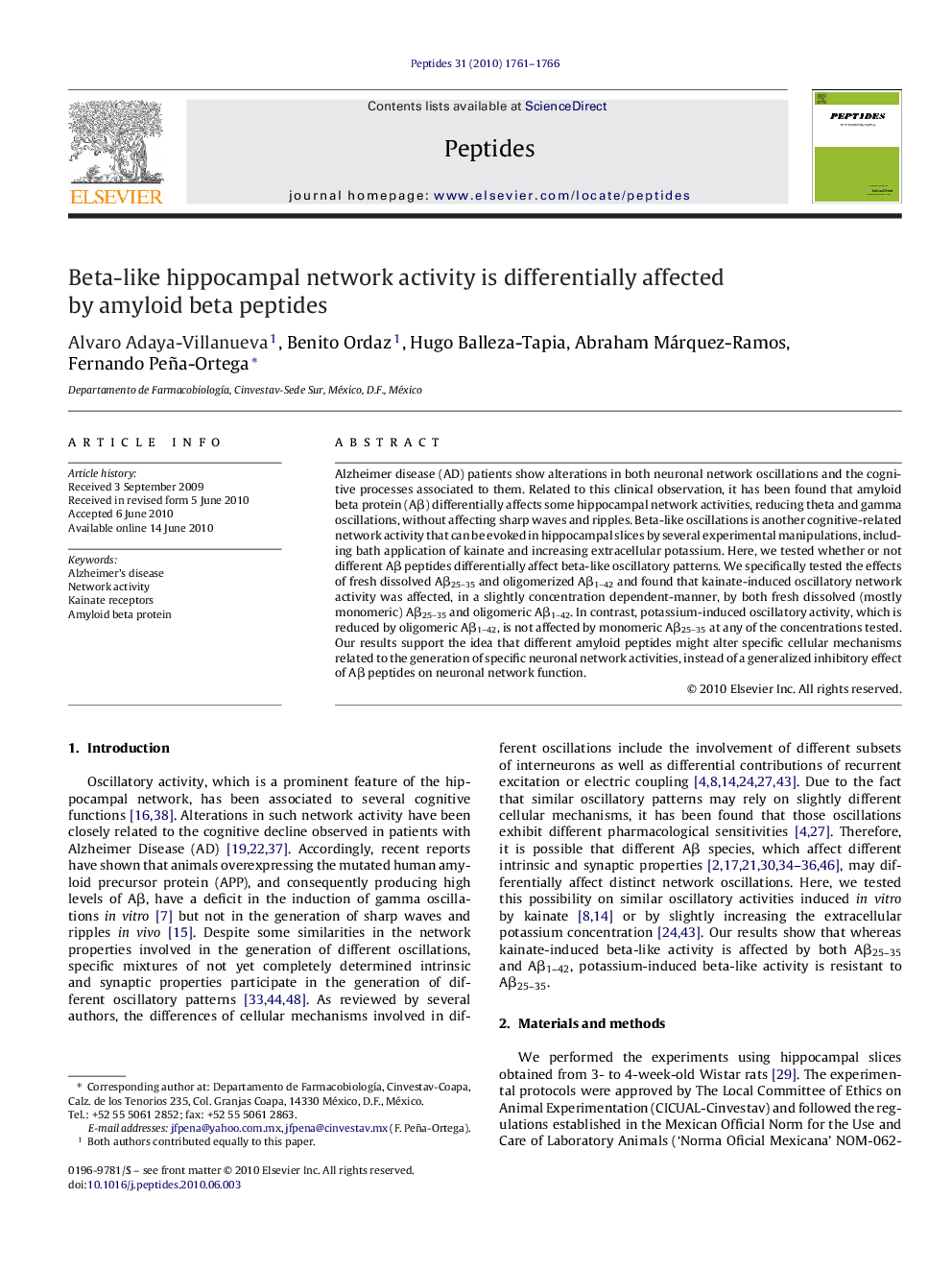| Article ID | Journal | Published Year | Pages | File Type |
|---|---|---|---|---|
| 2006829 | Peptides | 2010 | 6 Pages |
Alzheimer disease (AD) patients show alterations in both neuronal network oscillations and the cognitive processes associated to them. Related to this clinical observation, it has been found that amyloid beta protein (Aβ) differentially affects some hippocampal network activities, reducing theta and gamma oscillations, without affecting sharp waves and ripples. Beta-like oscillations is another cognitive-related network activity that can be evoked in hippocampal slices by several experimental manipulations, including bath application of kainate and increasing extracellular potassium. Here, we tested whether or not different Aβ peptides differentially affect beta-like oscillatory patterns. We specifically tested the effects of fresh dissolved Aβ25–35 and oligomerized Aβ1–42 and found that kainate-induced oscillatory network activity was affected, in a slightly concentration dependent-manner, by both fresh dissolved (mostly monomeric) Aβ25–35 and oligomeric Aβ1–42. In contrast, potassium-induced oscillatory activity, which is reduced by oligomeric Aβ1–42, is not affected by monomeric Aβ25–35 at any of the concentrations tested. Our results support the idea that different amyloid peptides might alter specific cellular mechanisms related to the generation of specific neuronal network activities, instead of a generalized inhibitory effect of Aβ peptides on neuronal network function.
